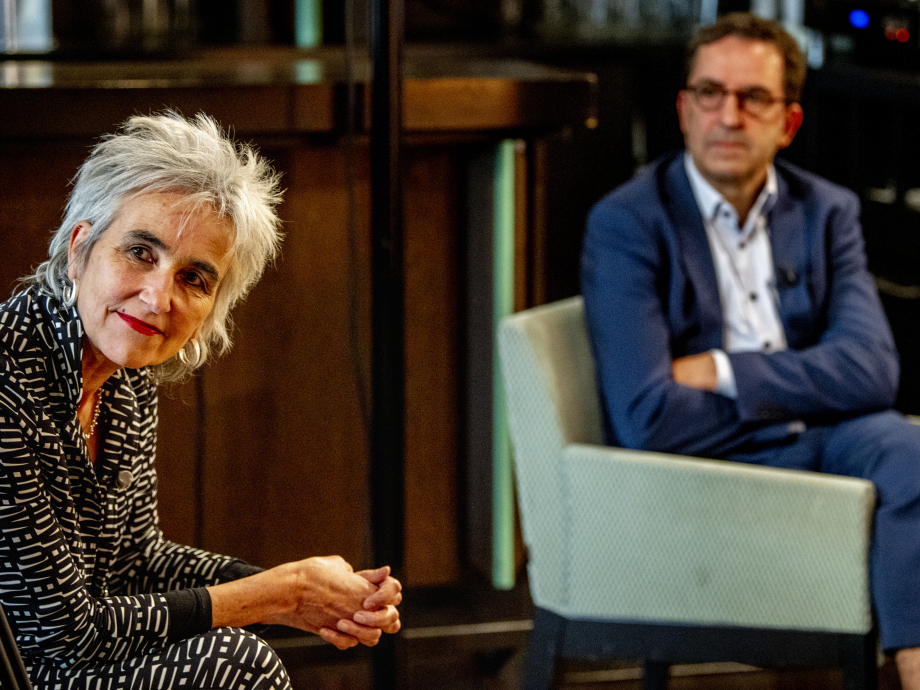Trust in science is high, but not unconditional
Research by the Rathenau Instituut has shown that the public's trust in science is high. During the covid pandemic, with plenty of debate about disputed science and policy, this finding is sometimes considered a suprise. So what else do we know about the public trust that the Rathenau Instituut is investigating?

In short:
- The Rathenau Instituut studies public trust in science.
- That trust appears to be high, but citizens set clear conditions.
- An important aspect, for example, is clarity about the role of scientists and politicians.
Surprise at high confidence in science
Science and covid- we live in complicated times. On the one hand, confidence in science was higher than ever at the beginning of this year, the three-yearly survey that the Rathenau Instituut conducted among Dutch citizens. At the beginning of 2021, for example, the Dutch gave their trust in science an average rating of 7.4 - a high enough score. This figure is also higher than their trust in the judiciary, the media, the government and large companies. On the other hand, during the pandemic, societal issues surrounding science also appear to be greater than ever. Uncertainty about the way in which the virus spreads and about the effectiveness of masks, the lack of knowledge about the long-term effects of the vaccine: these are just a few examples of the many points for discussion.
For this reason, the finding that confidence in science is high sometimes leads to both relief and surprise. While Minister van Engelshoven saw the increased confidence as a reason to encourage the scientific world, others proved more sceptic or cautious. So what about that trust? And what exactly did the Rathenau Instituut examine?
Conditional trust
In addition to the three-yearly survey in which we gauge the Dutch public's trust in science and compare it to their trust in other institutions, in 2021 we also conducted research into the conditions the Dutch people set for their trust in science. For this study, we talked to different groups of citizens, young and old, both practically and theoretically educated. We asked them, for example, what they think about scientific research that is financed by an external party, such as the government or companies. What did we find out? Yes, citizens have great confidence in our scientists. But no, their trust is not unconditional.
Citizens formulate clear conditions which scientists and financiers have to meet. They explicitly state that the independence of scientists and scientific organisations must be guaranteed within the cooperation with government. They realise that it can be valuable if a commissioning party provides input on, for example, the research question or the research method, so that research is better geared to the commissioning party's needs. However, citizens do not want clients to interfere with the writing down of findings and conclusions. In this way research is socially relevant and independent
Scientific knowledge and political choices
What about all the criticism of (covid-related) science? Loss of confidence in science has more to do with what the government does with scientific knowledge than with science itself. Societal pressure on science arises when the government takes policy measures which citizens do not agree with, and legitimises them on the basis of scientific research. Dislike or distrust of policy, in such a case, leads to dislike of the underlying science. But in a democratic society, the question of which choices politicians should make cannot be answered by scientists. Policy choices result from political considerations. Scientists should only inform politicians. And politicians should make clear, in a transparent manner, how they arrive at a certain policy measure, without hiding behind science. Scientists and politicians should therefore be role models; they each have their own tasks and responsibilities.
These insights show how a government, as the commissioner of research, can consolidate the trust of citizens in science. Actively involving citizens in research and in the development of policy contributes to this trust.